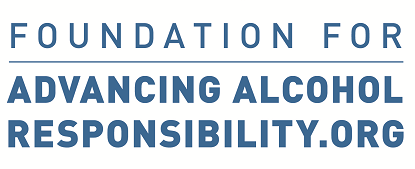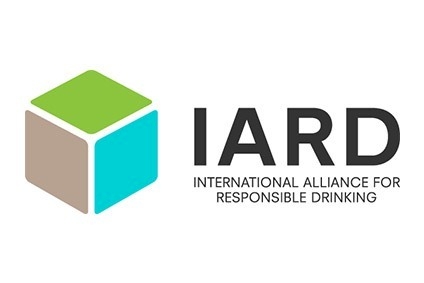In the Doghouse
Search
In the Doghouse
Spirits producers sponsor Harvard professorship
- Details
- Published: Monday, July 27 2015 19:23
July 27, 2015

FAAR is the new iteration of the Century Council, and an arm of the Distilled Spirits Council of the United States (DISCUS).
The endowment allows spirits producers to ride the coattails of a world-renowned, iconic, Ivy League research brand: Harvard Medical School. And it's not the first or only time Harvard and its Cambridge Health Alliance have joined with the alcohol industry. The Division on Addiction located within CHA has accepted project funding from Big Beer's Heineken as well as spirits producers. Howard Shaffer, the first awardee to this alcohol industry-endowed chair, was a lead investigator on the Heineken and spirits projects.
These funding relationships between alcohol corporations and institutions of higher education, particularly research institutions, are highly problematic and concerning. The relationships allow the alcohol industry to push its "drink responsibly" agenda with increased credibility from association with the Harvard Medical School brand. The "drink responsibly" research agenda places all of the focus and responsibility on individual drinkers to stop drinking the products which are produced and marketed to get them to keep drinking, and drink more of that product. Often research scientists with alcohol industry-endowed salaries or projects sponsored by the industry write op-eds, letters to the editor, commentaries, and articles in scientific journals without acknowledging the source of the research funding or including a statement of their conflict of interest.
If the spirits producers really wanted to "advance alcohol responsibility," they would hold themselves accountable and change their own business practices that make it more likely, and easier, for high-risk drinking and alcohol-related harm to occur. Socially responsible alcohol corporations would stop promoting and funding their own version of public health, while actively opposing the most effective policies available to reduce alcohol-related harm.
As the work from the U.S. Community Preventive Services Task Force makes clear, the cost of alcohol-related harm to states and their residents from excessive drinking is both concerning and modifiable. Costs from alcohol-related harm were more than $5.1 billion in 2006 dollars in Massachusetts - home to the new "drink responsibly" industry-endowed chair at Harvard Medical School.
International Alliance for Responsible Drinking: Giving Global Alcohol Producers a Voice, Again
- Details
- Published: Thursday, July 09 2015 08:25

Oh, wait a minute - that was the tag line for the Global Alcohol Producers Group (GAPG), half of the merger with the International Center for Alcohol Policies (ICAP) that created IARD. The new industry tag line is about action on alcohol and global health.
To anyone familiar with the alcohol producer responsible drinking and corporate responsibility shell game, this is nothing new. Alcohol producers have a new group, name, CEO, and website. The 12 alcohol producers behind IARD (Anheuser-Busch InBev, Asahi Group, Bacardi, Beam Suntory, Brown-Forman, Carlsberg, Diageo, Heineken, Kirin, Molson Coors, Pernod Ricard, and SAB Miller) also funded ICAP and GAPG.
Big Alcohol producers believe IARD will allow them to engage even more with all key stakeholders and influence alcohol policies around the world. As we've seen through the last several decades, that influence means fighting the most effective population-based alcohol policies available, including increased alcohol prices/taxes, reduced access and outlet density, and reduced exposure to alcohol advertising and promotion.
IARD influences policymakers by shifting them away from alcohol as a cause for harm, placing the responsibility for alcohol-related harm solely on drinkers (and in the case of youth, their parents/guardians), all the while growing producer credibility on alcohol policy and regulations throughout the world.
With 3.3 million annual deaths worldwide (5.9% of total) and 5.1% of the global burden of disease due to alcohol, we can't wait for IARD to lessen its grip on promoting its funders' actions to influence alcohol policy worldwide. IARD is not a public health NGO.
A-B InBev & its Marketing Won't Take No for an Answer
- Details
- Published: Friday, May 15 2015 12:48

As two of its recent campaigns illustrate, A-B InBev doesn't like to hear the word "no" when it comes to marketing its products. As part of its Bud Light - Up for Whatever campaign, the company released bottles with labels proclaiming Bud Light "the perfect beer for removing the word 'no' from your vocabulary." On the heels of the provocative slogan came a new campaign with the Statue of Liberty on Budweiser labels, for which the National Parks Service waived its longstanding policy against promoting alcohol consumption.
After the Up for Whatever labels that sound like a pro-date-rape slogan (with multiple layers of A-B InBev approval) were released, astounded social media dubbed Bud Light the Official Beer of Rape Culture. The brand's PR machine made it worse by issuing an excuse-laden statement, making light of the serious implications of the slogan and claiming the company didn't mean any harm. A-B InBev also claimed the labels didn't present a public health or safety risk and did not pull the bottles from the shelves, despite an outcry from advocacy groups pointing out the clear and consistent role of alcohol in incidents of sexual assault, particularly on college campuses.
This just the latest incident where Bud Light promoted ignoring "no." Last September, complaints from Crested Butte, CO residents were ignored when A-B InBev took over the town for a weekend-long Bud Light-branded party.
A-B InBev's marketing arrangement with the National Parks Service waives a policy, in place since 1988, prohibiting donations from companies that would identify the NPS with alcohol or tobacco products. But the company to obtain a waiver under the guise of supporting a NPS Find Your Park centennial public awareness campaign. Clearly A-B InBev wants to increase public awareness--of its product. The NPS branding campaign clearly targets a new, young demographic with the idea that drinking Budweiser is patriotic, an integral part of outdoor recreation, and promoted by the U.S. government.
Given the ever-increasing harm caused by excessive alcohol consumption in the U.S.--nearly 88,000 deaths annually, including more than 4,300 underage youth; $293.5 billion in economic harm; and 4% of U.S. cancer deaths -- A-B InBev needs a vocab lesson. No means no.
More Articles ...
Help us hold Big Alcohol accountable for the harm its products cause.
| GET ACTION ALERTS AND eNEWS |
STAY CONNECTED    |
CONTACT US 24 Belvedere St. San Rafael, CA 94901 415-456-5692 |
SUPPORT US Terms of Service & Privacy Policy |
Copyright © 2025 Alcohol Justice. All Rights Reserved.
Joomla! is Free Software released under the GNU General Public License.


